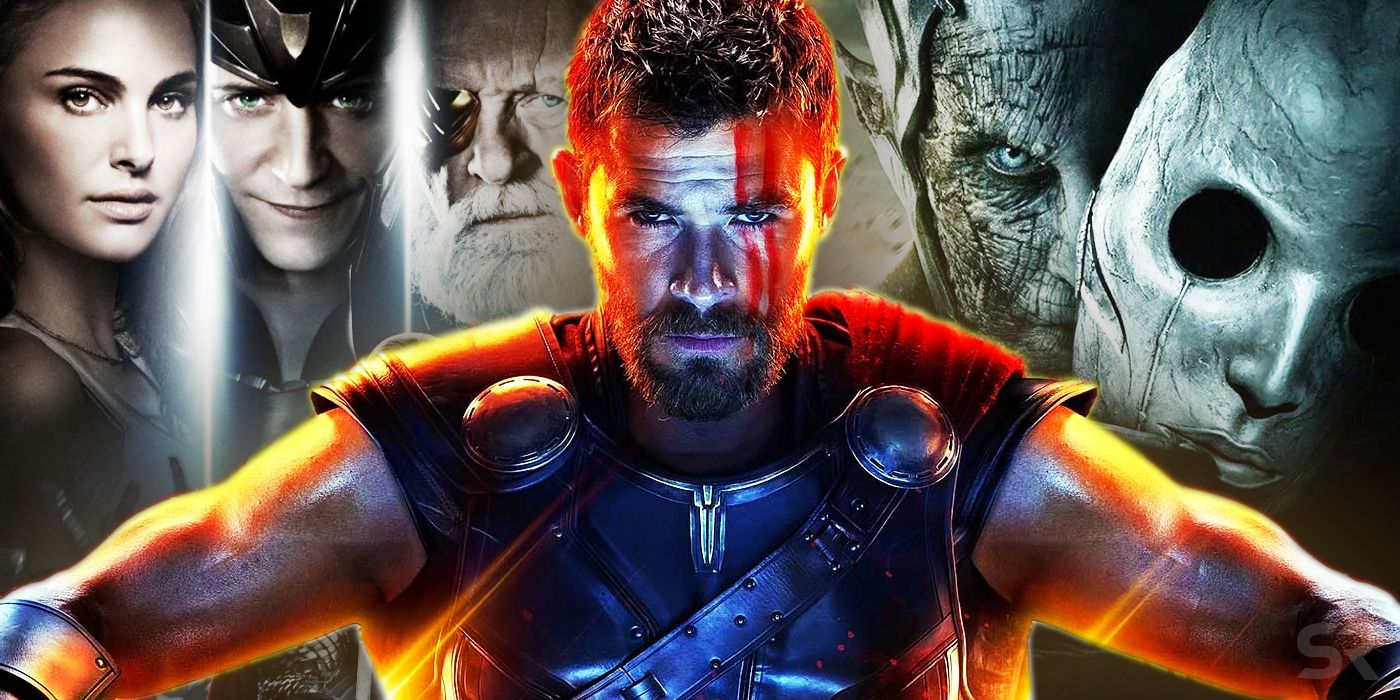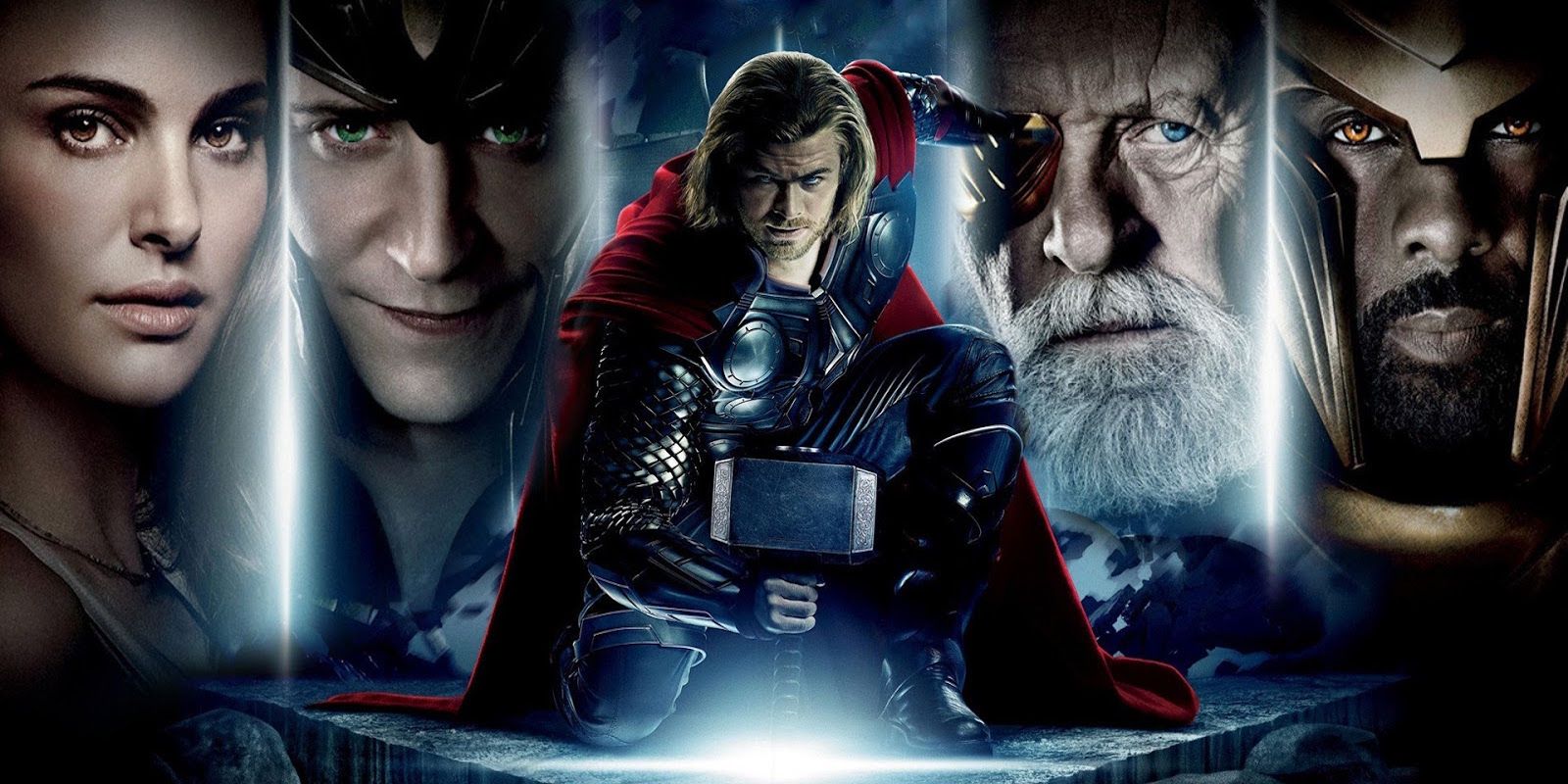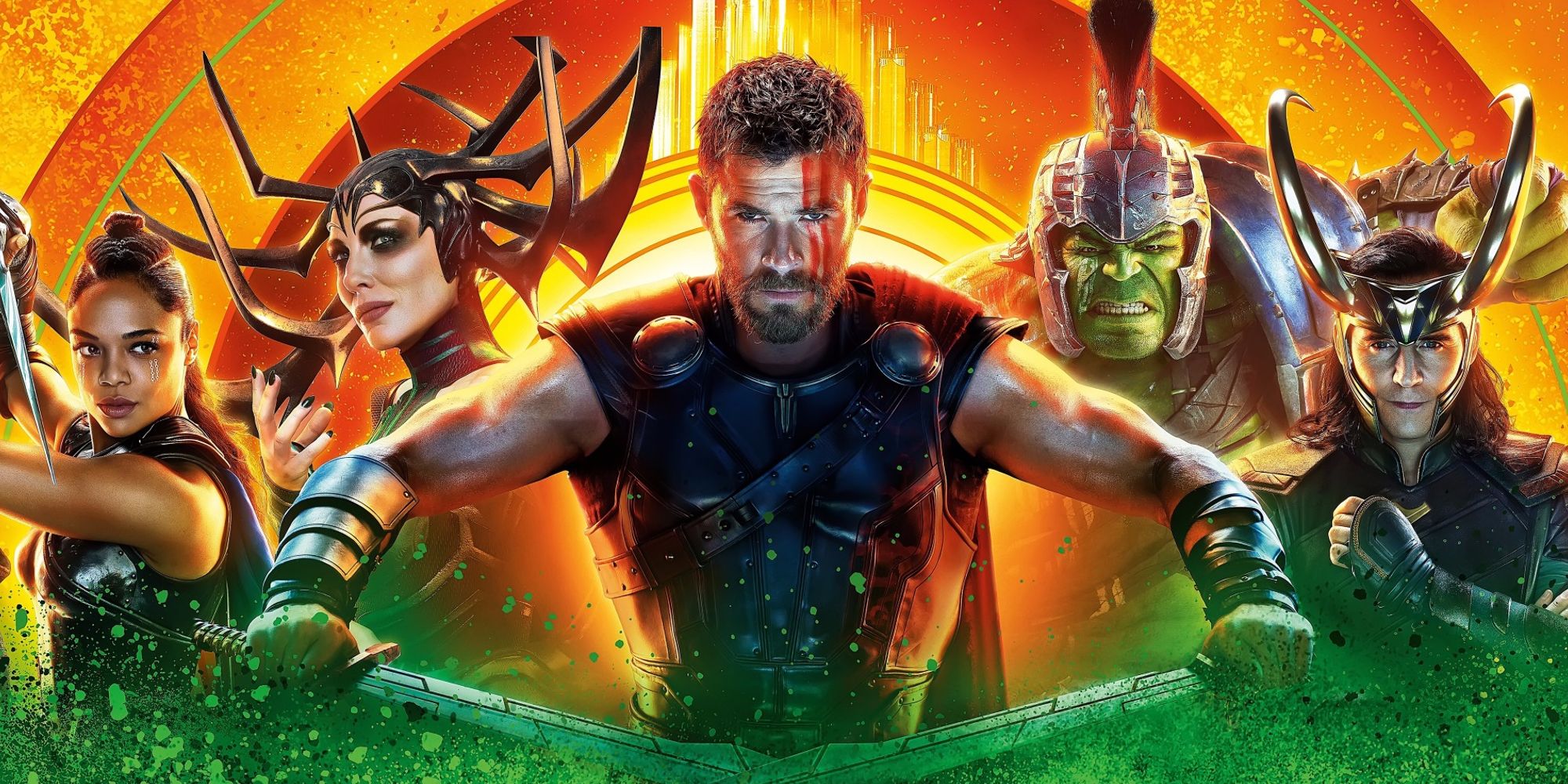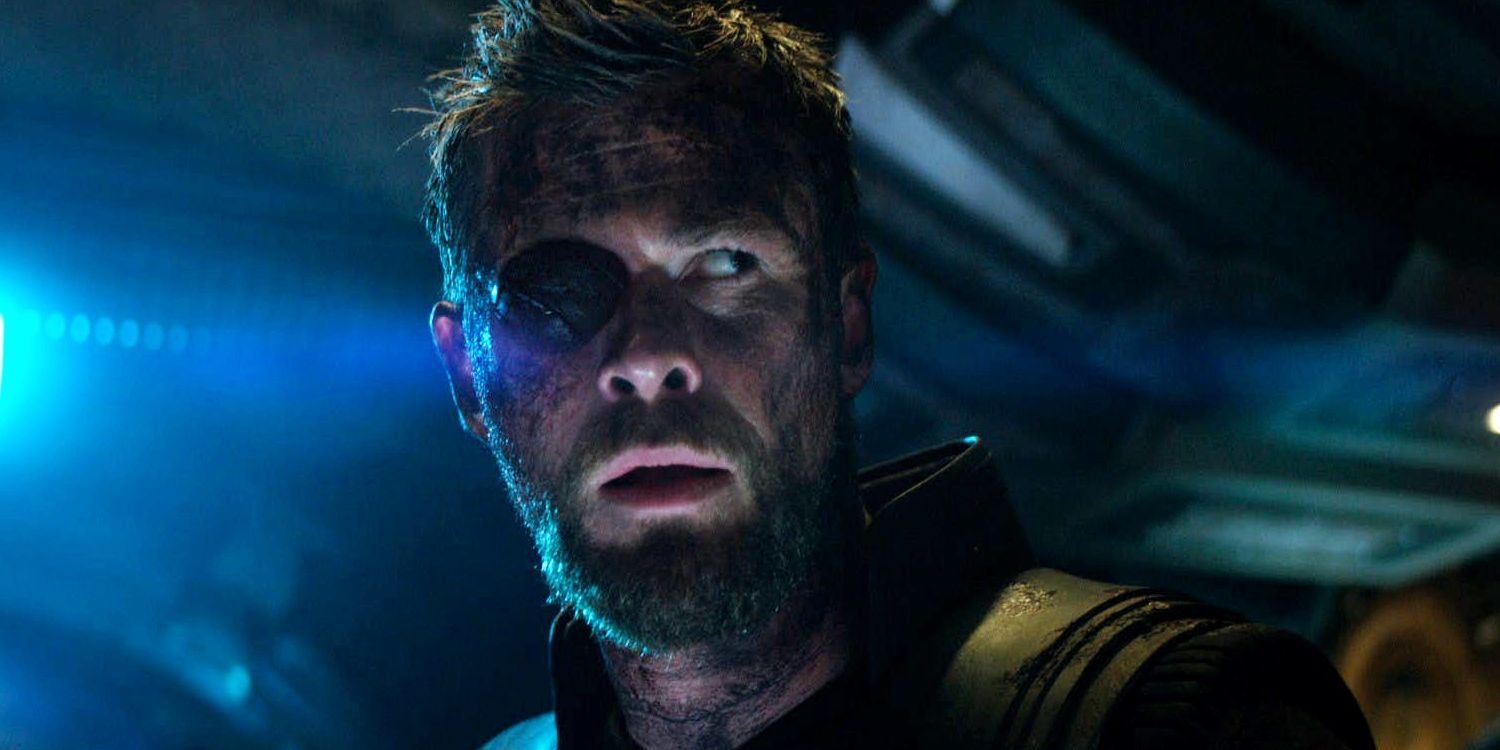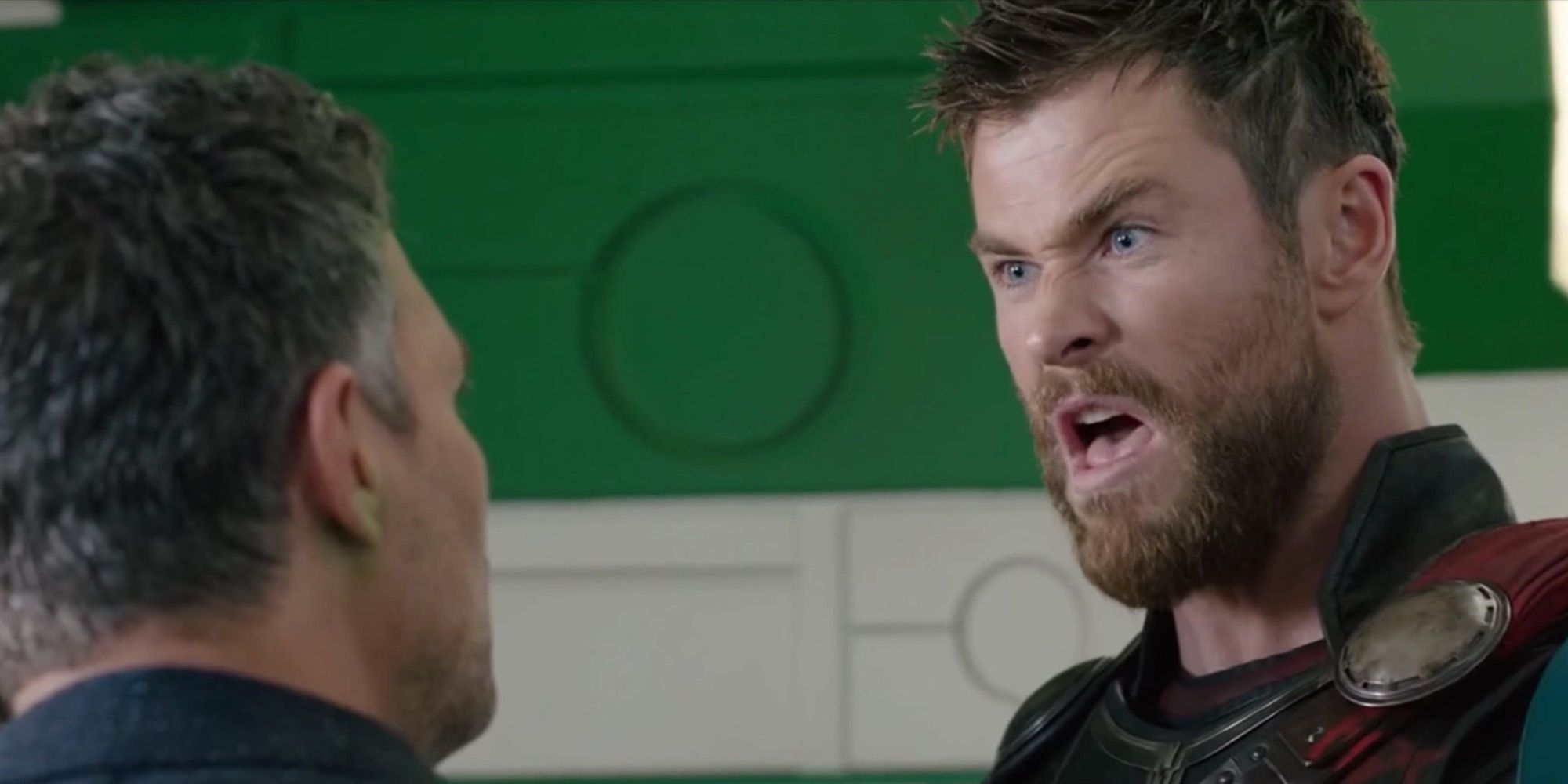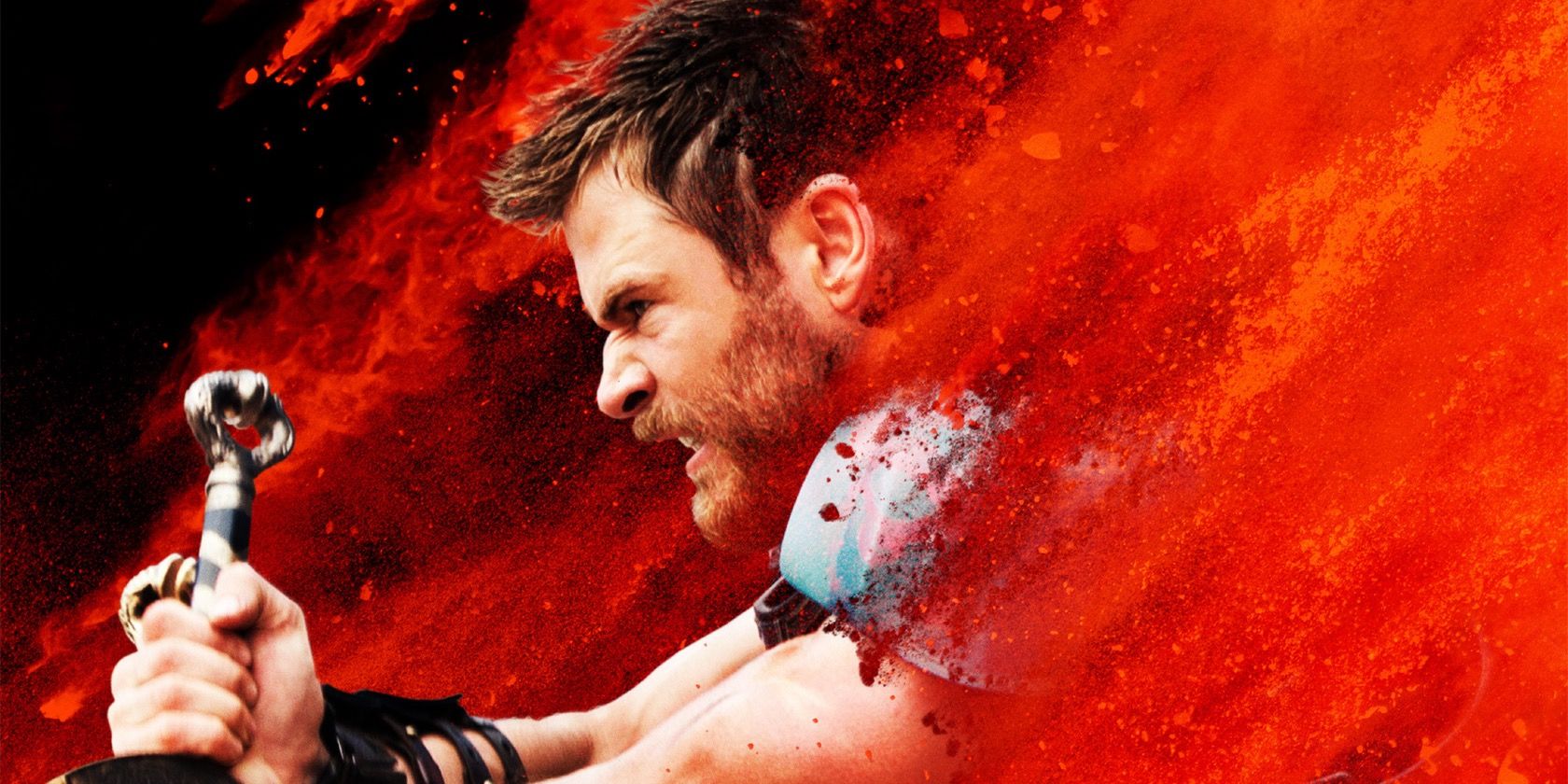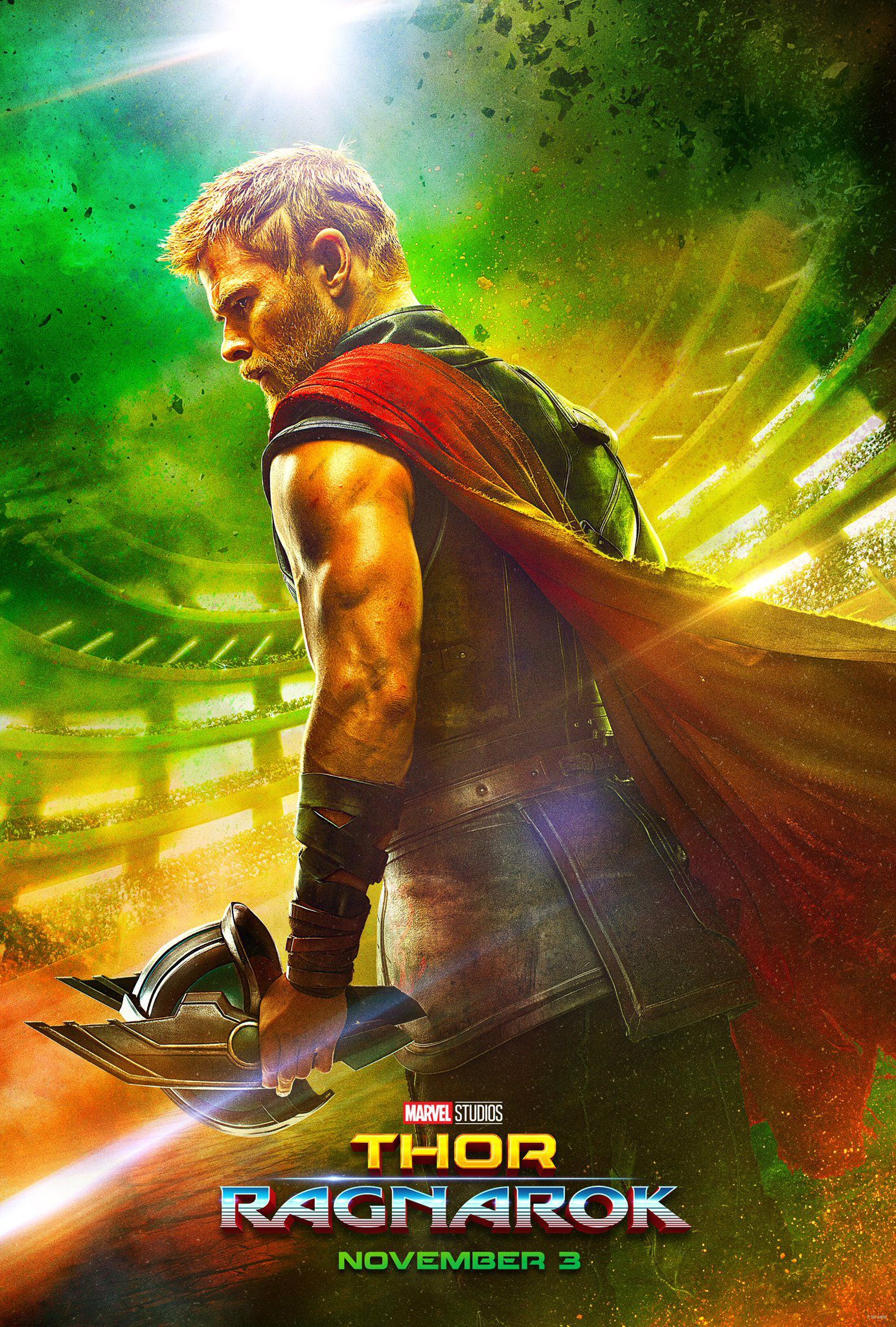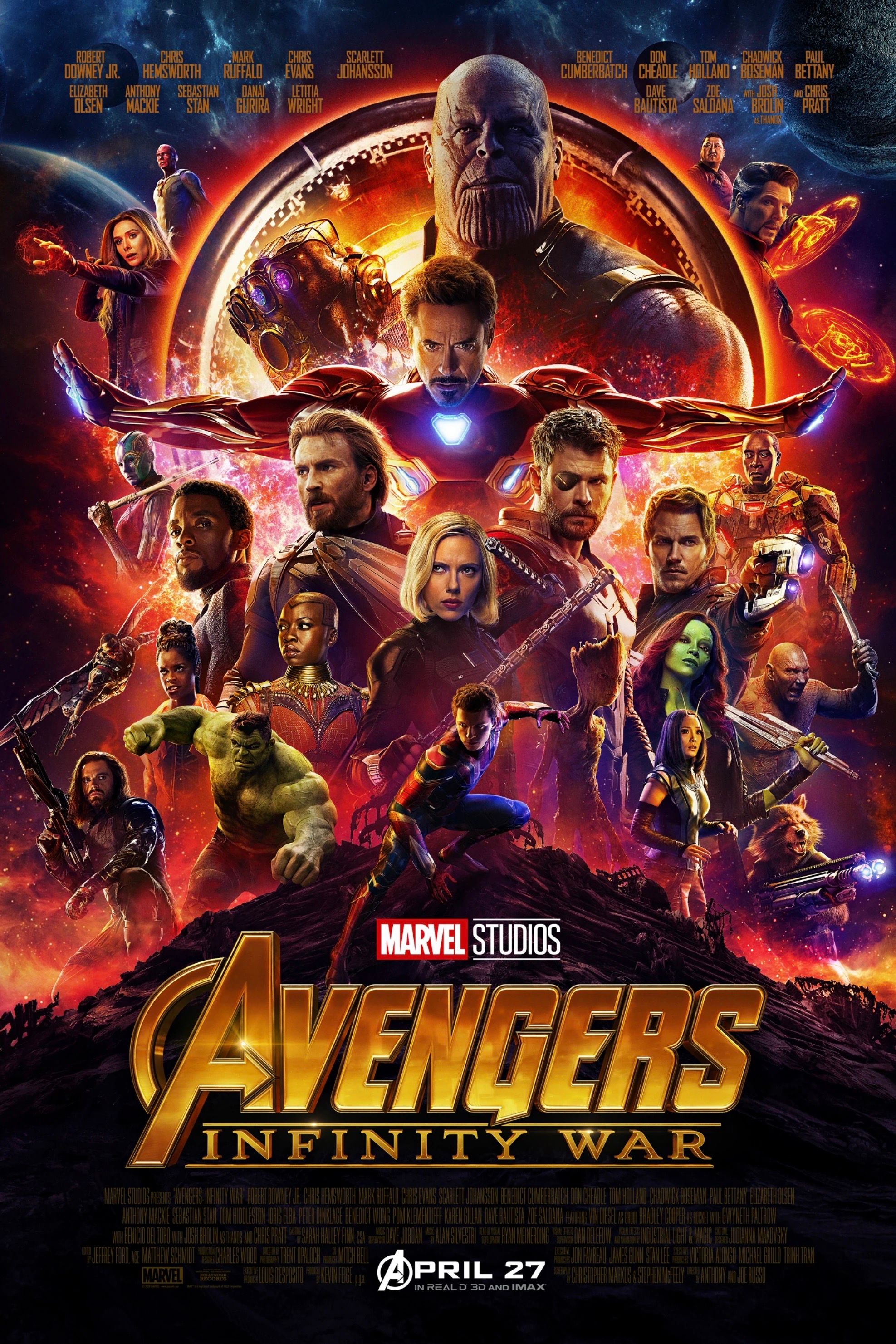Thor: Ragnarok is not only the best received and most successful of all the Thor films, it's also the movie that saved Marvel's Thor franchise. It's easy to dismiss Taika Waititi's film as comedic fun, but his soft-reboot of Asgard was a lot smarter than that.
Before Ragnarok, Thor was an ill-defined if likable meathead of a character, used primarily for punching and occasionally fish-out-of-water jokes made at his expense. But now? Thor's become one of the Marvel Cinematic Universe's most bankable stars, with Ragnarok breaking into the top ten highest earning MCU movies. It's the third best reviewed MCU movie, with much of the praise going to Chris Hemsworth's enthusiastically fun portrayal and Taika Waititi's stlylish direction.
Related: The Highest-Grossing Movies Of 2018 (So Far)
Thor is now poised to become the shared universe's lead entering Marvel's Phase Four, taking up the mantle from his fellow Avengers, Iron Man/Tony Stark and Captain America/Steve Rogers. But without the work made to improve the character and rehabilitate his franchise with Ragnarok and later Avengers: Infinity War, none of this would have been possible.
Thor Was Marvel's Least-Necessary Franchise Before Ragnarok
Phase One of the MCU was a testing ground for ideas, establishing the characters who would form The Avengers and lead Marvel's shared universe. Iron Man, Captain America, and Thor became franchise superstars, but by Phase Two, Thor began lagging behind. Both Iron Man 3 and Captain America: The Winter Soldier were improvements on the previous entries, moving their lead characters into new and interesting territory, while Guardians of the Galaxy and Ant-Man expanded the MCU with new quirky characters and different stakes. Thor: The Dark World, however, was an utter mess.
Before The Dark World, Kenneth Branagh's Thor had given the character a solid foundation in his introduction, but when Marvel sought Branagh for the followup, he refused, citing "creative differences." Marvel then secured Patty Jenkins to direct, but she too left after clashing with Marvel (going on to direct Wonder Woman to great success). Eventually, Alan Taylor of Game of Thrones fame was brought on to helm Thor's second picture but his experience on the project was "particularly wrenching," claiming that during post-production, "it turned into a different movie." Marvel had no idea what to do with the franchise, resulting in The Dark World having a lackluster story, forgettable villain, poor use of the Asgardian elements, and absolutely zero development or growth for its main character.
Related: Chris Hemsworth Doesn't Really Like Thor: The Dark World
Following The Dark World, there was little enthusiasm for Thor from either audiences or Marvel. His arc in Avengers: Age of Ultron was nonsensical and his role as the window to the MCU's cosmic side was supplanted by the Guardians. If Thor was going to continue to be an integral part of the MCU in Phase Three and beyond, the character and his franchise needed a complete overhaul. And that's exactly what Chris Hemsworth wanted, claiming himself that he wanted a Thor movie in the vein of James Gunn's Guardians of the Galaxy.
How Ragnarok Rehabilitated Thor
After two solo films and two other MCU appearances, Thor remained a stagnant character, changing very little from one film to the next. Thor's supporting cast was largely forgettable and his close ties to Earth, while important early on, were now restrictive and limiting. Most of all, the Thor films weren't as fun as they should be, neither producing stellar action or truly memorable moments to make them stand apart from the rest of the MCU.
Thor: Ragnarok took aim at these issues, jettisoning what wasn't working and keeping what did. In hiring indie director Taika Waititi, Marvel committed to a vision for the character and the franchise where the tone was silly but the stakes still mattered. Ragnarok stripped Thor of his comfortable status quo, sending him on an adventure to an other-worldly place, alongside new and interesting characters, and without his hammer - forcing Thor to recognize that he and not his hammer was the source of his power - Mjolnir had just helped him focus it. The result was a film that was transformative for the character, infusing the Thor franchise with an attitude and visual style it never had before.
Ragnarok went on to earn more at the box office than either of the previous Thor films, thanks in large part to the new elements and change in tone. The marketing, too, leaned heavily on the film's playfulness, which made it more appealing to a wider audience. Thor was now a highly bankable property for Marvel, and come Avengers: Infinity War, Odinson would have a role to go along with his elevated status.
Page 2: Thor's Infinity War Arc & The Future
Thor's Awesome Infinity War Arc Started In Ragnarok
Avengers: Infinity War picks up Thor's story directly from where Thor: Ragnarok left off. Thor has taken his rightful place as king, reconciled with his brother, and now seeks to establish a new Asgard for his people. Then Thanos happens, and after already losing so much, Thor has everything taken away again. When he's discovered floating in space by the Guardians of the Galaxy, Thor knows he must seek out and kill Thanos - not for revenge, but to prevent others from suffering as he has. It's a distinction earned in Ragnarok, where Thor began his quest to defeat Hela out of revenge before ultimately recognizing that, as king, the fate of his people is what's most important.
Related: The MCU Scenes That Are Extra Sad After Avengers: Infinity War
From there, Thor travels to Nidavellir, accompanied by Rocket and Groot, where he forges a new weapon capable of killing Thanos - a mighty and powerful ax, Stormbreaker. All three return to Earth, coming to the Avengers' aide in their battle with Thanos' forces in Wakanda. But when Thor gets his chance to land the killing blow, he only wounds Thanos, wanting Thanos to know who killed him rather than just finishing the job. It's a moment of weakness in which Thor lets his pride get the better of him, and it gives Thanos the victory. But Thor's Infinity War arc is far from over, and though he's faltered here, Ragnarok already proved Thor's capable of learning from his mistakes - and not killing Thanos is sure to be mistake he won't make again.
Chris Hemsworth Finally Got What He Wanted From Thor
The role of Thor is what made Chris Hemsworth a star, but after playing the role in four films, Hemsworth began to get "a bit bored." Thor's character hadn't evolved much over those four movies, and come Age of Ultron, it was clear Hemsworth no longer had the enthusiasm for playing him as he once did and he seemed ready to leave - like other MCU stars- as soon as his contract was up. Thor needing shaking up - not just for the franchise's sake, but for Hemsworth's.
Already committed to a third Thor film, Hemsworth discussed with producer Kevin Feige what he wanted most from the experience. It came down to was this - he wanted Thor to be funny. Both Guardians of the Galaxy and Ant-Man had proven there was a market for superhero action-comedies, and thanks to his roles in Vacation and Ghostbusters, Hemsworth had proven he had the comedic talent to carry his own. So Ragnarok let Thor be funny, and the result is a movie in which Hemsworth has more fun playing the God of Thunder than ever before.
Related: Chris Hemsworth Says Ghostbusters Role Helped His Marvel Performances
Ragnarok also filmed in Hemsworth's native Australia, which along with allowing Hemsworth to play a funnier Thor, made the whole experience a more positive one. Now, Hemsworth's enthusiasm for the character is renewed, and though his contract with Marvel ends after Avengers 4, it'd be easier now than before to convince the actor to re-sign for more movies.
This makes Thor a better character, but it also gave Hemsworth a box office hit where his talents were a key factor. His non-Marvel efforts - Red Dawn, Blackhat, Huntsman, In the Heart of the Sea - have been mixed at best, making it unclear if his power really did come from the hammer. Thor: Ragnarok disputed that, and now his future looks decidedly brighter, with a headline role in Bad Times at the El Royale and the Men in Black reboot currently shooting.
The Thor Franchise Now Has The Best Future
After Avengers 4, the future of the MCU is unclear. Only Spider-Man: Far From Home and Guardians of the Galaxy Vol. 3 have been announced for Phase 4, but one remains a shared property with Sony (and therefore beholden to more than just Marvel's whims) while the other is in crisis following writer-director James Gunn's firing. Elsewhere in the MCU, neither Iron Man nor Captain America are expected to have major roles after Avengers 4 as both Robert Downey Jr. and Chris Evan's contracts are up and both have expressed interest in moving on. Mark Ruffalo, Scarlett Johansson, and Jeremy Renner are all thought to have more films on their contract beyond Avengers 4, but only Johansson's Black Widow has received any serious discussion of receiving a solo movie.
This leaves Thor as the only legacy character left to lead the MCU into Phase 4 and beyond. There aren't yet any official plans for a Thor 4, but Ragnarok and Infinity War have certainly renewed interest in the character and made it all the more likely another Thor film will happen. Additionally, the new characters in Thor's franchise like Valkyrie and Korg quickly became fan favorites, and having expanded the cosmic side of the MCU in Ragnarok, Thor 4 could explore even more of the cosmos (especially given Asgard's destruction). Hemsworth has said he's game for Thor 4 were it to happen, and even Waititi has expressed interest in returning - a first for any Thor director (and he's already had meetings with Marvel about another project).
And while it's safe to assume that many of the MCU's newcomers - Black Panther, Captain Marvel, Doctor Strange, etc. - will comprise the core Avengers going forward, Thor is the most likely to return and fight alongside them. Prior to Ragnarok and Infinity War, it would have been unthinkable to place the future of the shared universe on his shoulders, but Thor's franchise now holds the most potential, making him an obvious choice to be at the center of Marvel's Phase 4.

